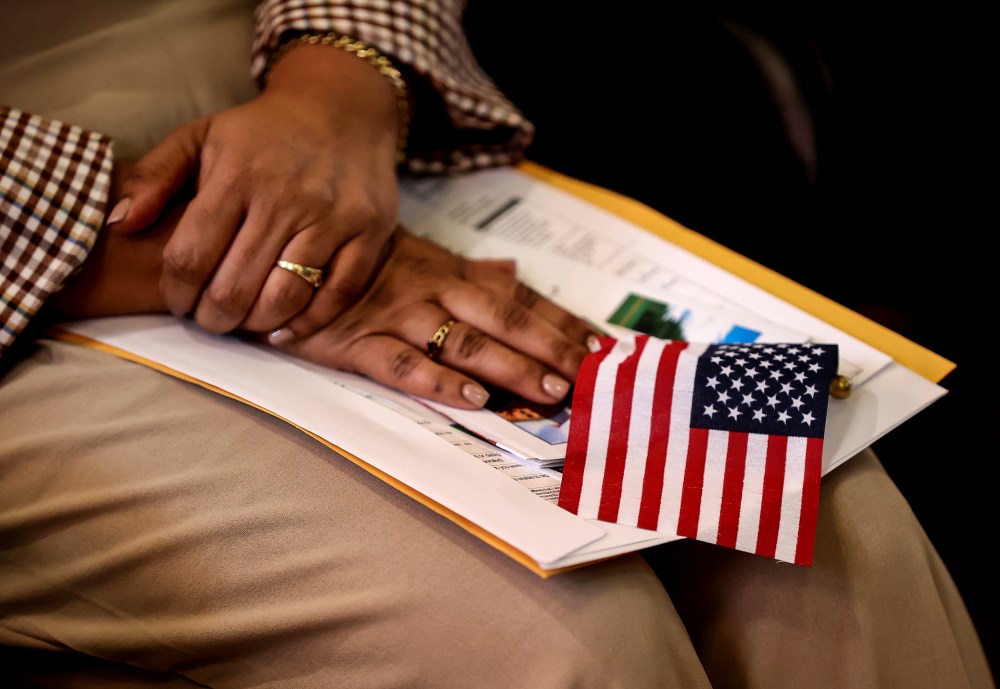The Trump administration is planning to roll out a new screening process to prevent people from working or gaining citizenship in the United States if they purportedly express what officials generally describe as “anti-Americanism.”
Unlike the administration’s disturbing plans to create a new layer of screening to make sure naturalized citizens exhibit “good moral character” — a trait most Americans don’t even seem to think the president possesses, according to a recent poll — the new “anti-Americanism” screening will apply both to aspiring citizens and anyone seeking a green card to work in the United States.
As The Associated Press reports:
U.S. Citizenship and Immigration Services said officers will now consider whether an applicant for benefits, such as a green card, “endorsed, promoted, supported, or otherwise espoused” anti-American, terrorist or antisemitic views. “America’s benefits should not be given to those who despise the country and promote anti-American ideologies,” Matthew Tragesser, USCIS spokesman, said in a statement. “Immigration benefits—including to live and work in the United States—remain a privilege, not a right.” It isn’t specified what constitutes anti-Americanism and it isn’t clear how and when the directive would be applied.
As I reported last week, the head of U.S. Citizenship and Immigration Services is Joseph Edlow, who in a recent Breitbart interview advanced the central tenets of the “great replacement” conspiracy theory, which posits that a liberal cabal is attempting to replace white Americans with nonwhite people through immigration, interracial marriage and, eventually, violence. It’s a racist theory that has motivated numerous mass murderers.
Now, Edlow’s job will reportedly include overseeing an agency that will screen immigrants’ supposed Americanness to determine whether they are worthy of working in the country or earning citizenship — with little or no official guidance on how these decisions should be made.
Jane Lilly Lopez, an associate professor of sociology at Brigham Young University, told the AP the move is “opening the door for stereotypes and prejudice and implicit bias to take the wheel.”













